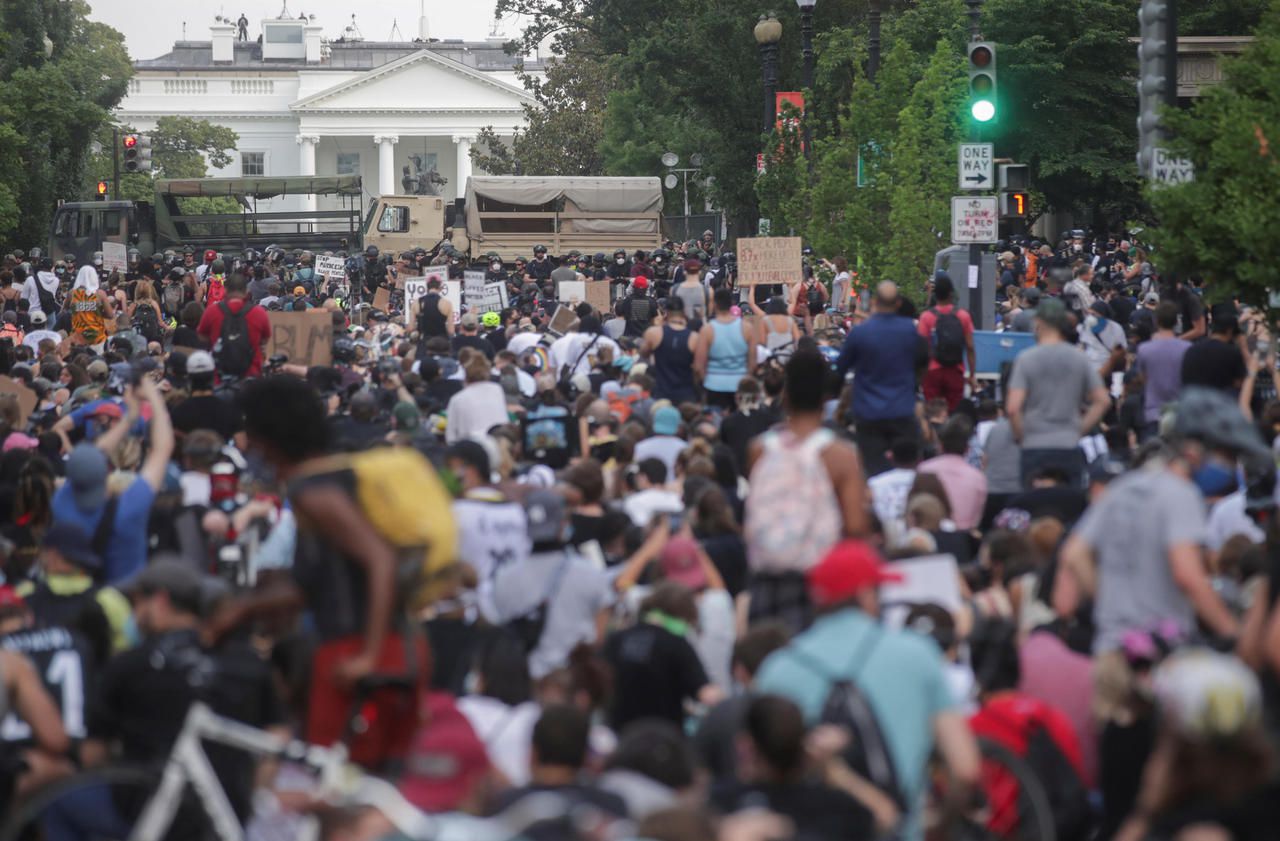Washington, Philidelphia, New York… Again this weekend, tens of thousands of Americans demonstrated against racism and police brutality, on a day marked by a new ceremony in memory of George Floyd. Since the death of this black father, asphyxiated under the knee of a white police officer, at the end of May in Minneapolis, anger has not fallen again in the United States, where images of human tides in the streets of many cities regularly make the one of the media. Why is this drama, which nevertheless has many precedents, raising the country with such breath? Elements of explanation.
Slow agony live
The viral video of George Floyd's death has disgusted the United States. The scene, captured by a passerby, is filmed closely. Eight long minutes during which the victim can be heard calling his mother for help, before his death by asphyxiation. "We are witnessing his agony live, it's excruciating," said political scientist Marie-Cécile Naves, director of research at the Institute of International and Strategic Relations (Iris).
Tonight I am sad watching a 10 minute video as 4 #MinneapolisPolice agents ground #GeorgeFloyd until his last breath.
I know they were sacked but to be killed by the police who must protect us is odious, revolting and scandalous! pic.twitter.com/8PI1tvBDN0
The scene particularly marked the spirits by its "unfair, derisory, and at the same time very violent side", an "explosive cocktail", observes Jean-Eric Branaa, lecturer American society and politics at the University Paris-2 and researcher at the Thucydides international relations research center.
He explains: “George Floyd dies while trying to buy 20 dollars worth of goods. He does not resist and repeats these same words, heard ten years ago in the mouth of Eric Garner, another African-American who died in the hands of the police: I can't breathe. The policeman hears them, but he does not release the pressure. "
The place where this terrible scene takes place, finally, gives it a particular resonance. Minneapolis (Minnesota), in fact, is a rather progressive city. "We do not expect such a scene to take place in this area, where tensions are much less latent", adds Nicolas Gachon, lecturer in American civilization at the University Paul-Valéry Montpellier 3.
The Covid-19 health crisis, a "revealer"
The anger of African-Americans takes place in a particularly difficult context for them: the Covid-19 health crisis. “We are emerging from an absolutely exceptional crisis. Containment, which has been compulsory in the United States, has exacerbated passions, "analyzes Jean-Eric Branaa, author of" America in the time of the coronavirus "(VA Press). "It is a breeding ground favorable to the expression of anger," abounds Marie-Cécile Naves.
The black population paid a heavy price for the Covid-19 pandemic. According to figures from the APM Research Lab, in the United States, the Covid-19 has killed three times more African-Americans, who often live in more difficult social conditions, than whites.
"This population has been particularly affected by unemployment and bankruptcies caused by confinement," insists Marie-Cécile Naves, who wrote "Geopolitics of the United States" (Eyrolles). The health crisis thus had for the African-Americans a “revealing effect of their fragility”, advance Jean-Eric Branaa. "They realize that nothing has been resolved since the racial riots of the 1960s."
Trump, in the countryside, "blow on the embers"
Another element of context, all this takes place in the America of Donald Trump, "who has never really sent, since his election, positive signals vis-à-vis racial minorities", points Marie-Cécile Naves.
Newsletter - Essential news
Every morning, the news seen by Le ParisienI'm registering
Your email address is collected by Le Parisien to allow you to receive our news and commercial offers. Find out more
In 2017, for example, Donald Trump called the American football players who put their knees on the ground during the "Star Spangled-Banner" "sons of bitches", believing that they should be "fired". During the Charlottesville riots of 2017, Trump had not hesitated to dismiss white supremacists and anti-racists back to back, declaring: "There are very good people on both sides. "Donald Trump is seen by blacks as a racist president," said the researcher.
The debate on police brutality, latent in American society, "is hysterized today, approaching the presidential election" scheduled in 150 days, pins Nicolas Gachon, co-author of "Traces and Memories of Slavery in the Atlantic World ”(Routledge). "Donald Trump is a president who campaigns by dividing. We observe that this kind of tension, which would normally destabilize any president of the United States, is nevertheless likely to have him re-elected. "
An analysis that Jean-Eric Branaa does not share, however. "It is giving Donald Trump disproportionate importance. He does not manage this crisis well, he blows the embers in one way or another, but frankly, he is not responsible for the fact that people are on the street. Americans laugh at the Trump show . They are in their movement, with their demands, which are much deeper than the simple person of Donald Trump. "

